EU To Slap More Sanctions On Iran Regime For Protest Crackdown
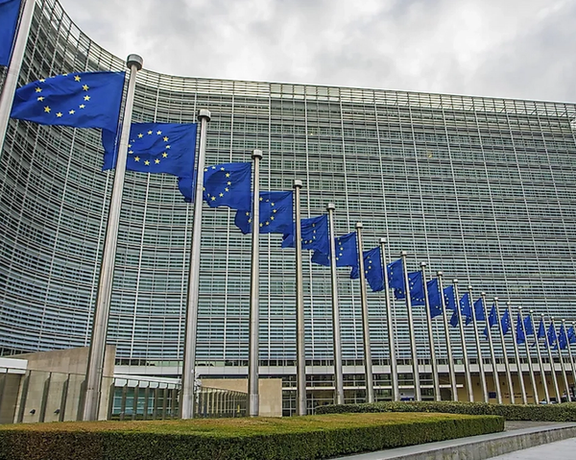
Sources say the European Union intends to impose sanctions on eight Iranians and an organization that had a hand in suppression of protests following the death in custody of Mahsa Amini.

Sources say the European Union intends to impose sanctions on eight Iranians and an organization that had a hand in suppression of protests following the death in custody of Mahsa Amini.
EU countries have agreed to take new punitive measures against those responsible for the repression, the Dutch website De Telegraff quoted some sources as saying.
The bloc’s foreign ministers still have to approve the sanctions on Monday at their meeting in Brussels, but it is expected to be adopted.
The designated individuals and organizations will no longer be allowed to enter the EU and can no longer access any assets in the union. The EU has so far imposed such sanctions on 196 Iranians and 33 Iranian organizations and companies including prominent politicians and security officials.
The latest round of sanctions from the EU in late February included Iran's Culture Minister Mohammad Mehdi Esmaili for persecuting artists and filmmakers and also Education Minister Yousef Nouri for suppressing students.
The European Parliament has called on the EU to list the Revolutionary Guards as a terrorist entity, blaming it for the repression of domestic protests and the supply of drones to Russia.
However, the 27-nation bloc has so far stopped short of blacklisting the IRGC as a terror group, despite calls from Berlin and Amsterdam.
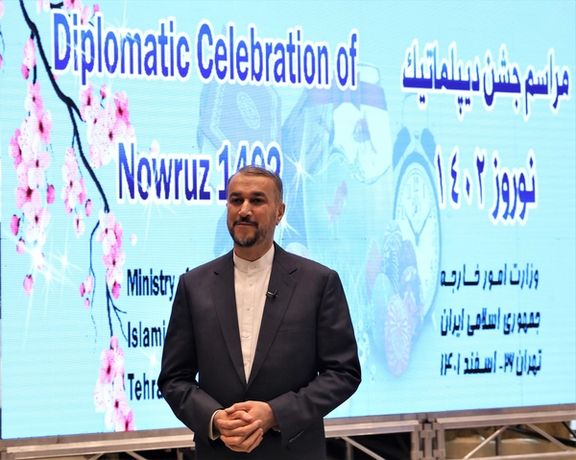
A tweet by Iran’s foreign minister saying there is full coordination in foreign relations has led to further speculation about his absence in diplomatic missions.
Hossein Amir-Abdollahian did not accompany national security chief Ali Shamkhani to Beijing earlier this month to sign an agreement with Saudi Arabia to restore relations. He was also absent from Shamkhani’s follow-up visit to the United Arab Emirates on Thursday. Shamkhani is also scheduled to visit Iraq to sign what is said to be an economic agreement, but it certainly a trip related to the push by the regime to take maximum advantage of the momentum created by the agreement to restore ties with Riyadh.
The foreign minister posted an unusual tweet Friday that “Foreign policy is coordinated. Everything is within the framework of the system, supervision by President. Enemies should know: there is no discord.”
While some had raised eyebrows when Amir-Abdollahian was absent in Beijing and Abu Dhabi, this tweet led to both criticism and ridicule by Iranians on social media and even negative comments on websites in Iran not run by the government.
Many readers observed that there was no need to mention the word “coordination” several times in the Persian version of the tweet. They said it simply convinced them that the foreign minister is powerless and sidelined when it comes to major foreign policy initiatives. It should be also noted that Amir-Abdollahian has specialized in regional issues and relations with Arab states.
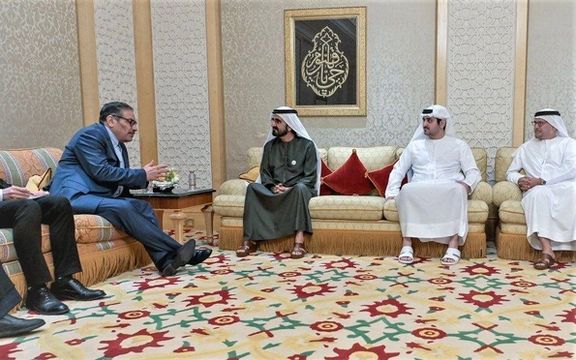
The Secretary of the Supreme National Security Council, is nominally appointed by the President, but he is also Supreme Leader Ali Khamenei’s representative in the Council. The regime decided to give Shamkhani the high-profile mission of signing an agreement with the Saudis and the Chinese, instead of Amir-Abdollahian.
This was perhaps a message that Khamenei is making a commitment – not the government of President Ebrahim Raisi, that everyone knows does not call the shots in foreign policy.
But in one way or another, Khamenei’s decision to send Shamkhani to Beijing showed that in serious matters he needs a more qualified official than hardliners populating the current presidential administration. In fact, Rouydad24, a reformist news website in Tehran pointed out Saturday that hardliners have been trying to tarnish Shamkhani’s image, by leaking information that one of his former aides, Alireza Akbari, was executed in January for espionage.
Rumors also circulated in February and March that he was about to be dismissed following the news about his aide. Afterall, Shamkhani is a holdover from President Hassan Rouhani’s days and hardliners would like to see an ultra-conservative take his important job. The only reason he has stayed in the security council is that Khamenei prefers him.
Although the 83-year old ruler made sure ultra-conservatives loyal to him take the absolute majority in parliament and also the presidency in 2020 and 2021 respectively, he knows there are few qualified people among them, and at least in the realm of key foreign policy issues he makes sure his direct representatives are more balanced and experienced officials.
This also brings up the question of why he entrusted the nuclear negotiations to people more associated with the ultra-conservatives. We simply do not have a clear answer yet.
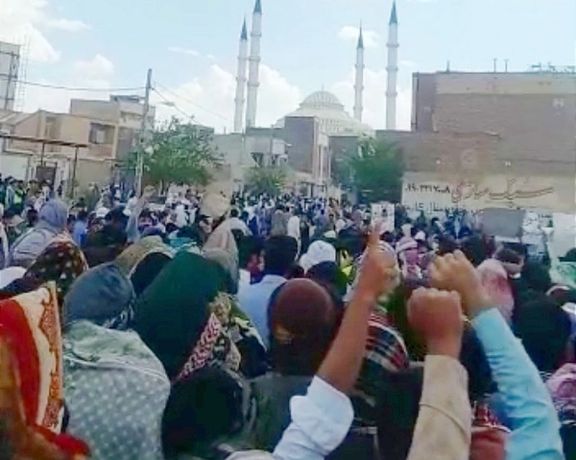
March 17 was the last Friday in the Iranian year as people in Zahedan held anti-regime rallies for the 24th week and heard another historic speech by their Sunni leader.
Like in the previous weeks, Mowlavi Abdolahamid delivered a moving Friday sermon, saying that a single ideology cannot and should not be the only dominant view in the country. "One ethnic group and one religion cannot rule the country,” he stated.
Iran is ruled by Shiite Islamic sect ideology and clerics since the 1979 revolution that toppled the monarchy.
Decrying the domination of a single religious view in the country as the cause of Iran's political deadlock, Abdolhamid said that “Iran is a rainbow of ethnicities, religions and pluralities,” suppressed by the ruling religious view for the past 44 years. The Islamic Republic has not been able to establish equality and balance among such a variety of views while ideas have failed the nation.
Implicitly calling for a secular democracy, Abdolhamid said that the Islamic Republic has limited the Iran’s potential with its narrow interpretation of religion in governing the country.
He said that the regime has prevented meritocracy by preventing people of other ideologies from acquiring positions and important roles in the government. He pointed out that Sunni Iranians have no significant role in the judiciary and administration even at local level.
“Our dear Shia friends also complain about such discrimination, saying that that qualified individuals, who are not very committed to religious practices but are capable academics, thinkers and worthy managers have been discriminated against,” he added.
He emphasized that the "rainbow" is the right metaphor for the diversities in Iran, denouncing the dominant religious ideology for not creating equality for other ideas.
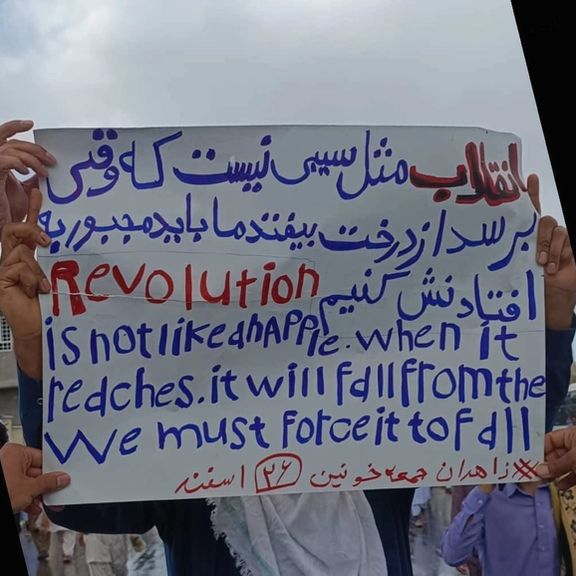
"Today, a military and security point of view prevails throughout Iran, but no country whose ruling point of view is security and military will develop," he said. The view of the government should be comprehensive and national, not religious, because the religious view will fail, he noted.
Comparing the current value of the national currency with that of the Pahlavi era before the 1979 Islamic Revolution, he criticized the narrow and religious view of the ruling power of the country that has damaged the principles of Islam in the country.
The Iranian rial has dropped from 70 against the US dollar in 1979 to 470,000 currently.
He condemned "torture, beating, killing and violation of people's rights," saying that the oppression of others is "worse than polytheism and disbelief.”
"The presence of police officers in the streets should be avoided,” he added. “In many countries, when security is high, there is no need for a visible police presence since the people's general trust in the government is strong."
Activists reported a large presence of security forces in the restive city as hundreds of demonstrators took to the streets, chanting "Freedom, Freedom, Freedom," "We don’t want the Islamic Republic" and "Political prisoners must be released."
Zahedan is the provincial capital of Sistan-Baluchestan Province, home to Iran's Sunni Baluch minority of up to two million people.
Residents have been holding protest rallies every Friday since September 30 when security forces killed nearly 90 people, in the deadliest incident so far in the nationwide demonstrations triggered by the September death in custody of a 22-year-old Kurdish woman, Mahsa Amini.
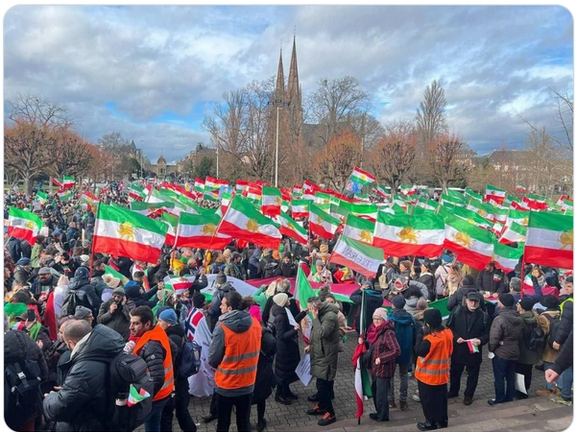
Capital flight and brain drain are two of the most serious challenges Iran faces as President Raisi claims his government is ready to help investors and experts to return.
Speaking at a gathering of expatriate Iranians in Tehran Wednesday, Ebrahim Raisi said he has ordered the foreign ministry to form a taskforce to help resolve any legal or consular problems expatriate investors and experts may be facing for returning to the country.
By most estimates, 4-5 million first-generation Iranians have settled in other countries, but adding their children born abroad, who often acquire Iranian citizenship, the number can be much higher. There are also many immigrant communities in Asian countries, where no precise numbers exist. Some put the total number of Iranians outside the country at any given time at close to 8 million.
Raisi also ordered the ministry to lay the grounds for investments by expatriates and facilitate contacts with academics while claiming that a very bright future is awaiting the country and he cast the blame for the feelings of frustration and disappointment on “the enemy.”
At the same meeting, Foreign Minister Hossein Amir-Abdollahian said removing obstacles in the way of investment for expatriates, facilitating the return and employment of academics in Iranian universities, facilitating travel, and “countering the enemy’s media war against the Iranian nation in the country and abroad” were some of the most urgent tasks that the ministry would try to tackle.
Many Iranians living abroad, particularly those with dual citizenship who could be accused of spying for foreign governments, are wary of returning home for the fear of not being allowed to leave or even being imprisoned for their political activities or criticism of the regime while living abroad.
Dozens of dual nationals, particularly citizens of western countries such as the United States, Britain, and Germany have been sentenced to prison on charges of espionage in recent years. Some, such as Iranian-American businessman Siamak Namazi and Iranian-German rights activist Nahid Taghavi are still in prison.
The Islamic Republic often uses these prisoners as bargaining chips in negotiations with foreign governments or swaps them with Iranian prisoners and for money.
In November, amid nationwide anti-government protests, Amir-Abdollahian said the ministry had launched a portal that expatriates could check to find out if they could be in trouble for leaving Iran if they went back home, promising help from the ministry if there were any problems.
In the past six months, tens of thousands of Iranians have participated in protest rallies in support of the Mahsa protest movement in many major cities across the world. Many fear identification by the regime agents during such protests and danger of serious repercussions if they wanted to go back home.
Domestic issues such as inflation, international sanctions, political strife and politically driven economic risks, corruption and social restrictions have driven millions -- from investors to academics and professionals -- to emigrate in the past four decades.
The precise amount of capital leaving Iran is very difficult to calculate but it can be deducted from the official data on net capital account deficit. Head of Tehran Chamber of Commerce, Industries, Mines and Agriculture Masoud Khansari said in an interview with ILNA website in Tehran in early January that the annual outflow of capital has reached $10 billion. .
According to official figures, Iran's net capital account balance was positive from 2001 to 2005 when there was foreign investment. But in the following years, except in 2014, the balance has always been in the negative.
The hard currency outflow from the country is invested in various ways including in property, stocks, bonds, cryptocurrencies, or establishment of companies abroad.
Many of the people sending their money out could be the very regime insiders whose political connections has helped them make huge financial gains over the years. Many have invested in the property markets in neighboring countries such as Turkey, Georgia and the United Arab Emirates.
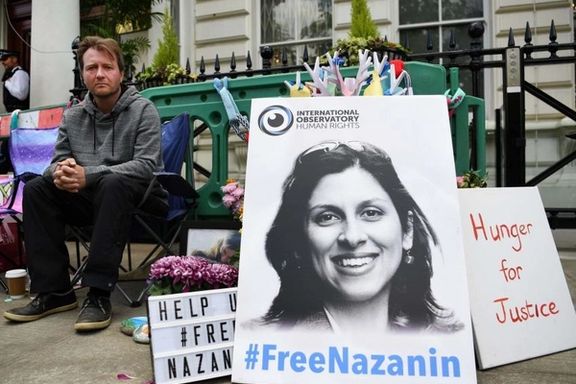
The husband of former Iranian-British hostage, Nazanin Zaghari-Ratcliffe, detained in Iran for several years, has accused the UK government of soft pedaling on Iran’s treatment of hostages.
Speaking to the Guardian on Thursday, Richard Ratcliffe criticized British officials, saying that they are losing interest in hostages after negative publicity surrounding his wife’s detention has subsided.
“One year on, I do find it upsetting how the government won’t say how many Brits are currently held hostage by Iran, that they tried to imply to parliament this week that states do not take hostages, and that since Nazanin’s case, they have not recognized the torture of any British citizen by a foreign government,” he added.
The Foreign Office minister, David Rutley, told the foreign affairs select committee on Monday that the UK did not believe a state could act as hostage taker, and instead uses the term “arbitrary detention for diplomatic leverage”.
Liam Byrne, a Labour MP said that hostage families needed a single point of contact who had a reporting line to the UK prime minister “to knock the proverbial heads of government together”.
However, the Foreign Office stated, “The UK will never accept our nationals being used as political leverage and we continue to press Iran to end this abhorrent practice.”
Ratcliffe raised his criticism on the first anniversary of the release of Nazanin Zaghari, who had earlier criticized London for the process of her release.
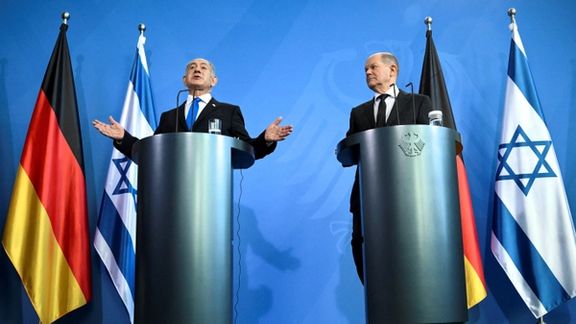
A senior Israeli official has told Iran International that Prime Minister Benjamin Netanyahu's recent visits to Europe is to convey the message that Israel would act alone against Iran if need be.
The official, who spoke on condition of anonymity, said Friday that Netanyahu's meetings with European leaders were aimed at reassuring them that Israel would do whatever it deems necessary against the Islamic Republic’s nuclear program.
“Recent trips to some European countries and meetings with the leaders of these countries are both a message for Europe and a direct message for the Iranian government," the source said, noting that Tehran has "received" this message.
On the backdrop of tensions over his government’s controversial overhaul of Israel’s judicial system, Netanyahu held meetings with Germany's aders, including Chancellor Olaf Scholz and President Frank-Walter Steinmeier, on his one-day trip to Berlin on Thursday where they talked about concerns over Iran’s fast-paced nuclear enrichment.
Israel will "do what it has to do, even alone" in the face of Iran's nuclear threat, the source said, adding that Netanyahu urged Schultz in their meeting to confront Iran with more strength and seriousness.
Moreover, the Israeli official told Iran International that thanks to Mossad operations inside Iran, progress in Tehran’s nuclear program with military potential was pushed back for seven years, but currently Tehran has passed serious red lines.
The official added that Israel and Germany are very close in finalizing a deal for the sale of the Arrow 3 -- or Hetz 3 in Hebrew -- exoatmospheric hypersonic anti-ballistic missile system to Berlin. The system is jointly developed and produced by Israel Aerospace Industries and Boeing under the management of the Israeli Ministry of Defense's "Homa" (rampart) administration and the US Missile Defense Agency.
As he stood with Scholz at the Holocaust memorial Platform 17 in Berlin, Netanyahu appeared to compare Iran with the Nazis, and spoke of the necessity of halting catastrophe in its early stages. “The main lesson we have learned is that when you are faced with such evil, you have to obstruct the evil designs early on to prevent catastrophe,” he said.
Netanyahu has time and again threatened military action against the Islamic Republic’s nuclear program as it enriches uranium closer to weapons-grade levels. On March 9, Netanyahu told Iran International that Tehran is “dangerously moving forward” in its nuclear program, claiming that he returned to the government primarily to make sure that Iran cannot become a nuclear “threshold power.”
However, German officials also criticized Netanyahu for rejecting a compromise proposal by Israeli President Isaac Herzog for overhauling the legal system. Voicing concern about the planned overhaul, Scholz hailed efforts by Israel’s figurehead to seek a “broad basic consensus.”
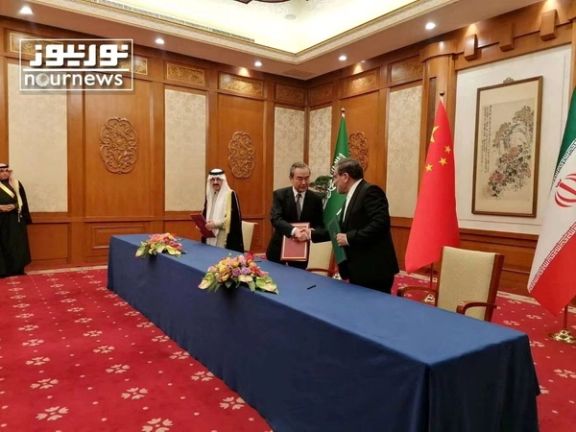
Netanyahu met with Italian premier Giorgia Meloni last week when both both called for bolstering bilateral ties. His meeting with Meloni came just after Iran and Saudi Arabia announced a resumption of diplomatic ties, a development that Netanyahu was widely criticized at home for failing to prevent.
Head of Israel’s National Security Council Tzachi Hanegbi told Iran International earlier in the week that the rapprochement between Tehran and Riyadh has nothing to do with Iran’s nuclear program. He described the agreement as a way to prevent the Islamic Republic from arming Yemen’s Houthis against the Saudi-led coalition, noting that Riyadh itself is worried about Tehran’s nuclear enrichment at weapons-grade.
On March 13, Iranian diplomat Kourosh Ahmadi said in an interview with Etemad Online that Europe and the United States probably welcome the breakthrough because it makes it less likely for Iran to disrupt the flow of oil from the Persian Gulf in case of an Israeli attack on its nuclear installations. He added that the agreement between Tehran and Riyadh will lead to a reduction in urgency for the US to supply arms to Persian Gulf Arab states as they would be now less concerned about possible threats from Iran.